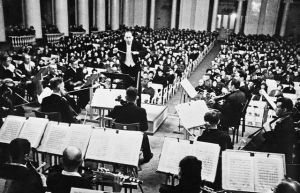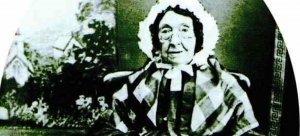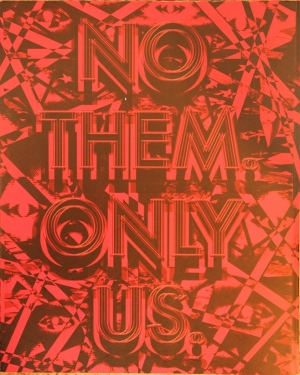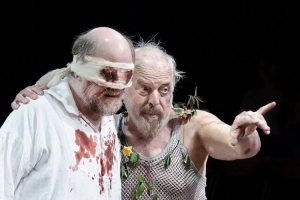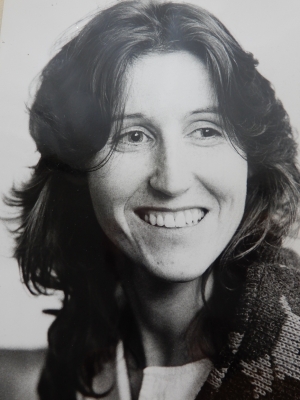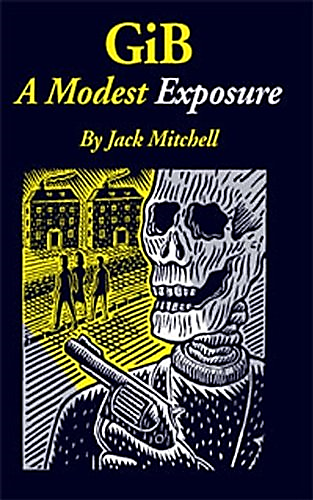Jenny Farrell introduces the life and poetry of Maxim Gorky, who was born 150 years ago, and presents his poem Storm Petrel, prophesying revolution.
Alexei Maximovich Peshkov, or Maxim Gorky, was born 28 March 1868 in Nizhny Novgorod (named Gorky,1932-1990), and died 14 June 1936. He was a Russian and Soviet writer, the founder of socialist realism in literature, and a political activist.
Gorky’s father, a carpenter, died of cholera aged 31. The transition to his grandfather’s world of poverty and violence shocked him. His uncles stabbed their wives to death; one of them sent to Siberia. When Gorky visited the house of his childhood many years later, he could not enter it. Memories were too traumatic. Gorky owed his survival to his illiterate grandmother Akulina, whose storehouse of legends and fairy tales was inexhaustible.
Gorky’s grandfather taught him to read from the prayer book. The impoverished owner of a dye-house, he moved the family to the outskirts of town, where they lived among the outcast. The harshness of this existence stayed with Gorky for life.
His mother read secular books with him. Nearly nine in early 1877, he started elementary school, leaving it due to poverty, aged ten. All his life Gorky was aware of his lack of a formal education.
Only ten years old, he contributed to the family’s livelihood by collecting rags, nails, and horseshoes, or stealing wooden boards. His mother died of consumption that year, aged just 35. Alexei had to leave the house.
Along the Volga, he observed labourers and boatmen; he witnessed child prostitution in the towns. Depictions of violated women are among the most shocking scenes in Gorky’s writings.
Books increasingly captivated Gorky. He read secretly by night, loved Byron’s rebellion, and above all Dickens, who truly loved people.
Gorky’s stay in Kazan became a turning point. Here, he met people who not only suffered, but also fought to change social conditions. He felt inspired by the populists, or folk friends, members of a revolutionary movement of the 1870s. Stirred by passionate belief in the people, they sought political renewal; the more radical of them advocated revolution.
When the students went on strike at Kazan University, Vladimir Ulyanov (Lenin) was among them. Gorky joined a study circle, discussing emancipation. Serfdom had recently been abolished. The group debated Tolstoy’s ideas and asked Gorky to seek his advice on the creation of an agricultural colony.
In autumn 1888, Gorky began his years on the road, desiring to learn more of Russia and its people. After these travels, Gorky began writing. His story ‘Chelkash,’ about a harbour thief was an immediate sensation and Gorky was hailed the voice of the people. His pen name Gorky stems from that time. His father, Maxim, had been called the bitter one (“Gorky”) because he told people the bitter truth.
Gorky worked as a journalist and published the 3-volume ‘Sketches and Stories’ (1898-1899). He wrote with compassion and optimism about the barefooted and outcasts. His strong, colourful, keenly observed characters, affirm life and the power of humankind. He understood and depicted realistically their social context, at times, glorifying the rebels. At this early stage, Gorky met and befriended Chekhov, Tolstoy, and Lenin. Chekhov encouraged him to try drama, which resulted in his most famous play, ‘The Lower Depths’ (1902), based on his stories of outcasts, and without an individual hero. Stanislavsky directed the play in Moscow and it became an instant success in Europe and the US. Max Reinhardt’s theatre in Berlin, staged the play on 500 consecutive evenings. It became one of the most performed plays of world literature.
Gorky’s descriptions of the barefooted gained him a place in Russian literature. In the early 1890s, there were five million barefooted in Russia, due to the great famine. Many died of starvation, or perished in dirty hostels and overcrowded prisons. While in the past, the barefooted had been dismissed as wretched drunkards, thieves and murderers, Gorky describes them as confident people, rebels even, who defy the yoke of serfdom. Gorky’s hatred for the establishment had grown with his travels. He had experienced enormous class differences in Russia and ruthless oppression.
The first translations of Gorky’s work appeared in 1899: two years later Gorky was known worldwide. He made friends with the painter Repin, and the singer Shalyapin. His play “The Philistines”, the first time the working class appear on the Russian stage, was performed under police observation.
Gorky, exiled to Arzamas, central Russia, in 1902, met radicals there and supported the Social Democrats with money from his publications. He set up an illegal printing press, began publishing radical leaflets and hoped to achieve a united front of the working class and liberal intelligentsia. Russia’s war against Japan had shown that the Czarist Empire was on its last legs, opposition movements gained impetus.
On Bloody Sunday, 9 January1905, Czarist forces in St. Petersburg killed over a thousand demonstrators. Gorky’s arrest and imprisonment caused an international outcry, contributing to his release. Unrest spread across the country, students and workers went on strike, and the battle ship Potemkin’s crew mutinied. A general strike paralysed the country. The Czar had to introduce civil rights and convene a legislative assembly, the Duma. Gorky’s apartment looked like an arsenal. Workers rose, but surrendered after an eleven-day struggle.
In early 1906, Gorky travelled secretly to Finland where the Finns welcomed him enthusiastically. He met Lenin in Helsingfors. They decided that he should leave Russia and act as an unofficial ambassador for the new Russia, collecting money for the revolution. The US seemed suited for such a fundraising tour. American Socialists had put forward the plan. Sympathisers like Mark Twain and Jack London promised their Russian colleague help. Gorky topped the bestseller list and the Metropolitan Theatre played ‘The Lower Depths’ to a full house.
Gorky travelled via Berlin. He met with leaders of the German social democracy, Bebel, Kautsky, Liebknecht and Luxemburg. He saw Max Reinhardt and played Luca in ‘The Lower Depths’ at the Deutsches Theater. He urged all Western countries not to lend Russia money, warning it would go towards greater oppression.
For millions of Americans, Gorky’s name stood for Russian liberation. The trip was to be a goodwill tour from coast to coast. Arriving 10 April 1906, many greeted Gorky. Mark Twain called for support for the Russian Revolution. Gorky spoke of his enthusiasm for Walt Whitman, Edgar Allan Poe and Mark Twain. He praised the liberty of the American people. However, his support of the trade union leaders charged with murdering a former governor in Idaho and, worse, the revelation that Gorky had travelled to America with his partner Maria, while still married to Katya was too much for puritan America. Even Mark Twain objected, as did William Dean Howells, and Roosevelt refused to receive him. One year later, George Bernard Shaw refused to go to America because of Gorky’s treatment.
Only John Martin and Prestonia Mann, leaders of the American Fabian Society, welcomed him in their home. Gorky went on a lecture tour through the USA, speaking in Williamsburg, Boston, Baltimore, and Philadelphia. Increasingly, he criticised American society, and was sensitive to the Native Americans. He continued to praise Walt Whitman, pioneer of freedom and beauty, who filled his poems with a pagan love of life. He wrote several pamphlets commenting on the fetish of the dollar.
American publishers now no longer published Gorky’s books, mainly because newspaper magnate Hearst held the exclusive rights. Here in America, Gorky finished his play “Enemies” and began the novel “The Mother”. Both works deal with the workers’ unrest in Russia. In “Enemies” (1906) Gorky depicts class antagonism in capitalist society and the determined struggle of the proletariat. “The Mother” became the foundation text of socialist realism and one of the best-selling books of the 20th century. Gorky showed the rise of the workers’ movement, its revolutionary development under party leadership. For the first time, the proletarian revolutionary movement found realistic representation. With Pavel Vlasov, Gorky created a hero of the era – a proletarian revolutionary and party worker. The mother’s character vividly shows the growth of a revolutionary among the people.
Gorky’s attacks on the Russian government meant he could not return home. He received political asylum in Italy. He arrived in Naples on 26 October 1906, unaware that Italy would be his home for almost eight years and that he would write more than half of his works here. Gorky was already famous in Italy and his plays were performed to full houses. In November, he moved to Capri, where he received an invitation to the Congress of the Russian Social Democratic Workers’ Party in London. The congress opened on 13 May1907 at the Southgate Brotherhood Church in Islington and lasted until 1 June. Lenin, Trotsky and Plekhanov attended. Gorky lectured on contemporary Russian literature in Hyde Park.
Many Russian writers visited him on Capri, as did Repin, Rachmaninov, Shalyapin and Stanislavski. He felt especially close to Shalyapin, compatriot from Nizhny Novgorod, who sang about the strength and beauty of the Russian homeland.
Gorky lived in Capri until 1913, when the Russian Duma passed an amnesty act to celebrate the 300th anniversary of the Romanov dynasty. Together with Lunacharsky and Bogdanov, he set up a “Party school” to educate working class leaders. Gorky lectured in the history of Russian literature. At that time, Gorky was close to Bogdanov, who advocated a “religion of socialism,” and Gorky coined the term “God-building,” combining religion with Marxism. Lenin disapproved, opposed the school and founded his own in Paris. Lenin rejected religion outright and thought Gorky a romantic.
On 31 December 1913, Gorky returned to Russia and helped establish the first Workers’ and Peasants’ University, the World Literature Publishing House, and Petrograd Theatre. He published the first volume of his autobiographical trilogy, “My Childhood” (1913-14), followed by “In the World” (1916), and “My Universities” (1922). In these, author-narrator Alyosha Peshkov, describes growing up in a Volga River town, and his youth.
When World War I broke out, Gorky lampooned the jingoism and ostracised his adopted son Zinovy Peshkov for joining the army, calling on conscripts to refuse military service.
In 1915, he founded a publishing house for children’s books, to promote children’s interest in good literature and giving them a sense of the purpose of life. He also intended to publish a series on outstanding people.
In 1921-22, Gorky fought against famine, cooperating with Fridtjof Nansen to bring food to Russia. He stated in an interview with the Daily Herald that there was no reason not to recognise the Soviet Union, and lifting the West’s economic boycott would save lives.
Gorky left the USSR again in October 1921. He was unwell, overworked, and he didn’t always see eye to eye with the Bolsheviks and Lenin. He travelled via Finland, Sweden and Denmark to Berlin. In Helsingfors, he promoted Russia aid and arrived in Berlin in November. More than 100,000 Russians lived in Berlin with many Russian publishing houses. In Berlin, a doctor found his condition serious. Between autumn 1916 and winter 1922, Gorky had not written a single line. Now, he finished “My Universities” and some novels. The situation in the USSR became increasingly insecure, with a trial against 34 members of the Socialist Revolutionary Party. Gorky settled in Sorrento. Gorky’s return to his homeland in the summer of 1928, was motivated in part by the opportunity to participate in its cultural life.
In “The Artamonov Business” (1927) Gorky began his post-revolutionary social-psychological analysis of capitalism. Based on three generations of a merchant family, the novel depicts the rise and fall of capitalism in Russia between 1863 and 1917. His play “Yegor Bulychov” set on the eve of the October Revolution, demonstrates the moral decline of the bourgeoisie. A subtle psychological analysis of bourgeois individualism between 1870 and 1917 makes “Klim Samgin” a masterpiece of socialist realism. In it, Gorky created a comprehensive tapestry of the political movements over forty years of Russian history and showed how the hero’s middle-class intellectual life ends in historical fiasco. The communist character Kutuzov meets Klim Samgin with true humanity. Gorky portrayed the new heroes, and heroism at work emerges as a key moral criterion.
Gorky’s socialist realist method is his ground-breaking world literary achievement. His works remain widespread on all continents and contribute to the consolidation of proletarian class-consciousness. They continue to be a touchstone and benchmark for socialist writers all over the world.
Storm Petrel
by Maxim Gorky
High above the silvery ocean winds are gathering the storm-clouds, and between the clouds and ocean proudly wheels the Stormy Petrel, like a streak of sable lightning.
Now his wing the wave caresses, now he rises like an arrow, cleaving clouds and crying fiercely, while the clouds detect a rapture in the bird’s courageous crying.
In that crying sounds a craving for the tempest! Sounds the flaming of his passion, of his anger, of his confidence in triumph.
The gulls are moaning in their terror – moaning, darting o’er the waters, and would gladly hide their horror in the inky depths of ocean.
And the grebes are also moaning. Not for them the nameless rapture of the struggle. They are frightened by the crashing of the thunder.
And the foolish penguins cower in the crevices of rocks, while alone the Stormy Petrel proudly wheels above the ocean, o’er the silver-frothing waters.
Ever lower, ever blacker, sink the storm-clouds to the sea, and the singing waves are mounting in their yearning toward the thunder.
Strikes the thunder. Now the waters fiercely battle with the winds. And the winds in fury seize them in unbreakable embrace, hurtling down the emerald masses to be shattered on the cliffs.
Like a streak of sable lightning wheels and cries the Stormy Petrel, piercing storm-clouds like an arrow, cutting swiftly through the waters.
He is coursing like a Demon, the black Demon of the tempest, ever laughing, ever sobbing –he is laughing at the storm-clouds, he is sobbing with his rapture.
In the crashing of the thunder, the wise Demon hears a murmur of exhaustion. And he knows the storm will die and the sun will be triumphant; the sun will always be triumphant!
The waters roar. The thunder crashes. Livid lightning flares in storm-clouds high above the seething ocean, and the flaming darts are captured and extinguished by the waters, while the serpentine reflections writhe, expiring, in the deep.
It’s the storm! The storm is breaking!
Still the valiant Stormy Petrel proudly wheels among the lightning, o’er the roaring, raging ocean, and his cry resounds exultant, like a prophecy of triumph –
Let it break in all its fury!
Source: M. Gorky: Selected Short Stories Progress Publishers, 1955;
Online Version: Maxim Gorky Internet Archive (www.marxists.org) 2002;
